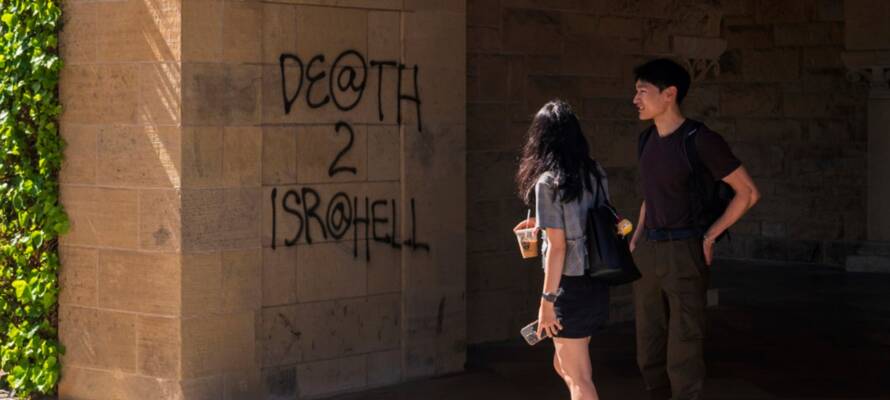Among Jewish adults, 25% report seeing antisemitism in their area—a doubling from previous reports.
By JNS
Research suggests that as crime targeting Jews has risen, the community’s trust in law enforcement has dropped, according to a study released on Monday by the Combat Antisemitism Movement.
The 40-page study presented the results of a survey of 1,075 American Jews between Aug. 12 and Sept. 3. Questions focused on experiences of antisemitism following the Hamas terrorist attacks in southern Israel on Oct. 7, 2023.
Answers suggest that 3.5 million American Jews have personally encountered antisemitism since then and that 61% feel less safe. This includes one-fifth of Jewish children experiencing incidents of bigotry.
Among Jewish adults, 25% report seeing antisemitism in their area—a doubling from previous reports—and 25% of those affiliated with synagogues say theirs has been targeted with graffiti, threats or attacks.
The survey suggests an increase in those physically threatened or attacked in the past year, increasing slightly to 7% from 5% in a 2020 Pew poll. This accounts for 406,000 adult Jews.
Of these individuals, an estimated 290,000 said the encounter involved physical contact, and only 21% reported the crime to police.
Coupled with the uptick in hate crimes, Jews surveyed show a diminished faith in law enforcement with 75% of those victimized by antisemitism not reporting incidents to anyone outside their family. Only 46% of Jews regard the police as somewhat or very effective, a drop from previous research.
The survey also confirmed fears of intimidation at colleges throughout the United States. For Jewish students surveyed, 39% felt uncomfortable or unsafe at a campus event due to their Jewish identity, while 29% felt or have been excluded from a group or an event on campus because of their religion.
These results also affect Jewish voting decisions, with 43% of those surveyed saying it would influence their choice come November.
“The explosion of anti-Jewish hate since Oct. 7 in this country has profoundly impacted individuals, families and communities,” said Misha Galperin, a member of CAM’s board of governors. “The extent of that impact on American Jews documented by this survey is simply stunning.”
The survey’s conductor Ira Sheskin, a geography professor at the University of Miami and a longtime national statistician for the Jewish community, said the survey “emphasizes the number of Jews impacted by antisemitism rather than just the number of incidents.”
He called the results “deeply concerning” and that they showed the “need for immediate action to address rising antisemitism in America.”
